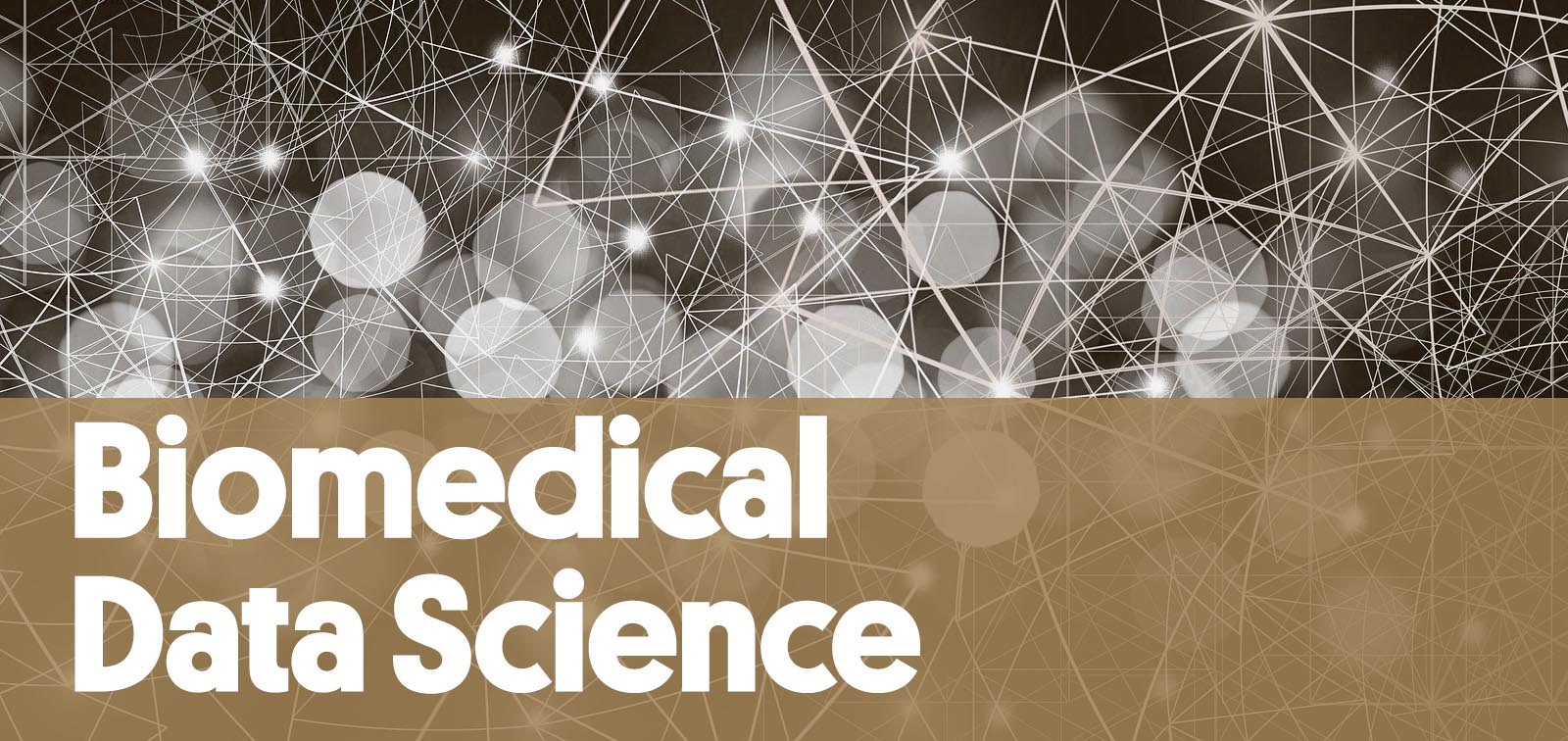Biomedical Data Science

Over time, valuable information on drug biological activity and clinical data from patients accumulates in corporate and public archives. Such datasets, as a whole, may be sufficient to provide new therapeutic leads, and the new data analytics technologies are now mature enough to accelerate drug discovery and development.
In parallel, with the advent of digital health, phones, tablets, and wearables have become integral parts of our lives, monitoring everything from daily intake and pulse to sleep patterns and behavioral habits. The COVID-19 pandemic has heightened awareness of the potential of telecommunication, reshaping our understanding of health and human relationships.
The Biomedical Data Science Team at ISGlobal seeks to develop and translate data analytics methods imported from other disciplines, such as physics, computer vision, and machine learning. We adopt an interventional approach to research, focusing on methods that aim to both explain and predict biomedical phenomena while delivering social impact.
While the application of artificial neural networks to study large datasets is becoming an established classification and prediction tool, this technology often lacks the interpretability required for biomedical applications and clinical implementation. Our lab focuses on developing analytical tools that provide interpretable results through Explainable Artificial Intelligence (XAI), offering new insights into the biological drivers of disease and facilitating the discovery of new biomarkers for the early diagnosis of conditions. This work aims to enable effective interventions and improve health outcomes.
Primary Research Areas
- Medical and microscopy image analysis and classification to support clinical-decision in neurodegeneration, aging and cancer.
- Heterogeneous data integration and Electronic Medical Records (EHR) for the automated risk assessment of population health outcomes.
- Explainable Artificial Intelligence (AI) applications in the biomedical field. Finding new biomarkers for the early detection and management of non-communicable diseases.
Current Projects
Early diagnosis of Liver Disease
LIVERAIM addresses the urgent need for early detection and treatment of liver diseases, such as fibrosis, cirrhosis, and liver cancer, which are often diagnosed too late. This digital tool is designed to facilitate the early diagnosis of liver fibrosis by integrating clinical, demographic, biomarker, and lifestyle variables. By applying advanced machine learning algorithms, LIVERAIM enhances our understanding of liver pathologies by providing explainable risk factors. Using digital health apps and wearables, it supports personalized monitoring strategies, ensuring timely and accurate interventions for better patient outcomes. LIVERAIM Project funded by Innovative Health Initiative Joint Undertaking (IHI JU) under grant agreement No 101132901. Team member: Angélica Atehortúa.
The Long Term Impact of COVID
The EndVoC project investigates the association between prior COVID-19 infections and vaccinations with changes in body mass index (BMI) and endocrine health, particularly focusing on obesity. By leveraging classical statistical methods and advanced machine learning techniques, our specific project within EndVoC analyzes BMI fluctuations in the Spanish population during the COVID-19 pandemic, exploring relationships between BMI, COVID-19 diagnosis, and vaccination status. Our findings will provide critical insights into how the pandemic has impacted population health, guiding public health strategies to manage obesity and improve health outcomes in vulnerable populations. This research is funded by the European Union’s Horizon 2020 research and innovation program under grant agreement No 874719. Team members: Paula Sol Ventura and Gina Saranti.
Deep learning to understand stem cell aging
This project aims to understand key biological drivers of aging in hematopoietic stem cells (HSCs) using advanced microscopy and AI-based analysis. Specifically, it focuses on identifying age-related changes in chromatin features within the nucleus of young and aged HSCs through confocal microscopy combined with computer vision.
We are designing an explainable deep learning model that classifies 3D microscopy images to provide a "rejuvenation score", which assesses the effects of various drug treatments on aged HSCs. This research contributes to an advanced image analysis platform with applications in drug screening and therapies aimed at reversing aging and improving health outcomes. This project is conducted in collaboration with Dr. Carolina Florián at IDIBELL, who leads research in the Molecular Mechanisms and Experimental Therapy in Oncology program, focusing on the interplay between aging and cancer. The project is funded by the “La Caixa” INPhINIT PhD fellowship, which supports innovative doctoral research initiatives. Team member: Pablo Iañez.
AI in Drug Discovery
ZeCardioAI combines zebrafish models with artificial intelligence to identify biomarkers and develop targeted therapies for dilated and hypertrophic cardiomyopathies. In collaboration with the Barcelona drug discovery company ZeCardio Therapeutics, we capture high-resolution cardiac video data and employ machine learning algorithms to analyze heart function and structure in zebrafish. This innovative approach accelerates the discovery of precise biomarkers and novel therapies, enhancing our understanding of the mechanisms driving disease progression. Team member: Ferran Arqué, Industrial PhD from ZeCardio Therapeutics.
Early Diagnosis using Ultrasound Technologies
A key interest of our team lies in the application of high-resolution ultrasound technology to enhance diagnostic capabilities in various medical conditions. Our team collaborates with Kriba, a medical device company based in Barcelona, to leverage artificial intelligence and high-resolution ultrasound technology for the detection of various infectious diseases such as meningitis and uveitis.
One of our key projects, the Automatic Early Detection of Peritonitis in Dialysis Patients, focuses on improving diagnosis by analyzing leukocyte concentration levels. Through this collaboration, we are working on an advanced and non-invasive method for detecting peritonitis, a common complication in peritoneal dialysis. By integrating high-resolution ultrasound with AI techniques, we aim for early detection that can significantly reduce healthcare costs, improve patient quality of life, and advance medical imaging and disease detection. Team member: Sara Guillén, industrial PhD from Kriba.AI
AI for Improved Cardiac Diagnostic Efficiency
The project aims to automate the detection, classification, and reporting of left ventricular Regional Wall Motion Abnormalities (RWMAs) from Cardiac CINE Magnetic Resonance using an AI-based solution, addressing the current gap in diagnostic standardization. The potential value lies in enhancing diagnostic accuracy, especially in resource-limited settings with fewer experienced clinicians, reducing clinician cognitive burden, and improving patient outcomes, with the added benefit of increasing operational efficiency in hospitals by streamlining the diagnostic process.
The project is conducted in collaboration with Dr. Matías Calandrelli and Martín Descalzo at the Magnetic Resonance Unit at Hospital de la Santa Creu i Sant Pau (HSCSP). The project is funded by Ayudas para contratos predoctorales para la formación de doctores/as, Gobierno de España. Team member: Guillermo Villanueva.
Digital Signal Processing Approaches for ECG Signal Classification
Low-cost, accessible physiological signals like electrocardiograms (ECGs) offer valuable preventive medical insights that can be leveraged through machine learning (ML). This project focuses on developing a reproducible tool to transform ECG signals into meaningful features or 2D images for classifying cardiac disorders, including Chagas disease and stroke.
By converting ECGs into features or images, we explore different representations of heart activity to improve disease diagnosis. This also helps us investigate explainability metrics, revealing how neural networks encode and distinguish between cardiac conditions.
Our goal is to enhance early detection in clinical settings using signal processing and neural networks. This work is co-led by Matias Calandrelli, and conducted in collaboration with Hospital Clinic and the Magnetic Resonance Unit at Hospital de la Santa Creu i Sant Pau (HSCSP). Team member: Diego Benito.
Our Team
Head of the group
-
 Paula Petrone Associated Researcher
Paula Petrone Associated Researcher
ISGlobal Team
-
Pablo Iañez Picazo
-
 Guillermo Villanueva Data Science Technician
Guillermo Villanueva Data Science Technician -
 PAULA VENTURA Clinical Research Fellow
PAULA VENTURA Clinical Research Fellow -
 Pedro Fleitas Postdoctoral Researcher
Pedro Fleitas Postdoctoral Researcher -
 Diego Benito Data manager
Diego Benito Data manager -
 Angélica Atehortúa Postdoctoral Fellow
Angélica Atehortúa Postdoctoral Fellow




